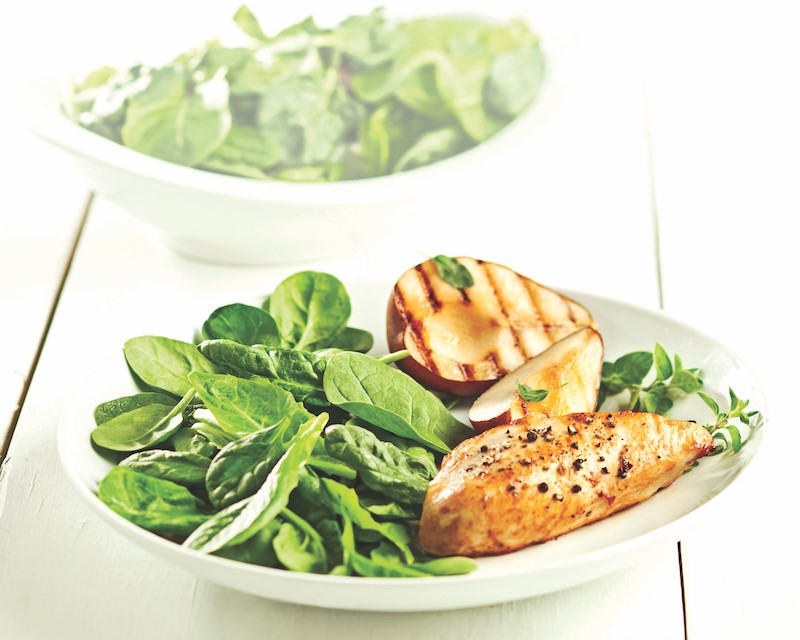Description
Certain nutrient needs increase during pregnancy, with folic acid, iron, and calcium among them. Here's how you can get more of these power nutrients in your diet for a healthy pregnancy. If you're concerned about not getting enough, talk to your dietitian or physician about supplements.
Folic Acid
To reduce the risk of birth defects, women should consume at least 400 mcgs of folic acid a day. This is especially important early in the pregnancy and just prior to getting pregnant. Foods rich in this nutrient include leafy greens such as spinach, legumes such as lentils, citrus fruits, and fortified foods such as cereals, pastas, and bread.
Iron
Iron deficiency is common during pregnancy, which means many women are not getting enough. Pregnant women need at least 27 mg of iron each day. Red meat, chicken, fish fortified cereals, spinach, and beans are all sources of iron. If consuming plant-based iron (i.e. spinach), pair it with a vitamin C-rich food for better absorption—a strawberry-spinach salad, for example.
Calcium
To provide enough calcium for healthy teeth, bones, heart, and nerves, pregnant women age 19 to 50 should consume 1,000 mg of calcium per day; adolescents 14 to 18 should consume 1,300 mg. Aim for at least 3 servings of calcium-rich foods such as milk, yogurt, cheese, or fortified cereals and juices.

